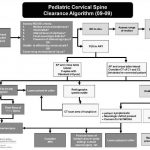
Ambulance 2.0: The “Super Ambulance” of the Future
Lifebot Technology has been working to upgrade the prehospital environment and connect it more closely with trauma professionals in the trauma center. They have done this by developing a so-called “super ambulance.” These ambulances are outfitted with new variations of tried and true technology. This includes a special Hewlett-Packard Slate tablet computer, multiple cameras inside the ambulance, cameras that are wearable by medics, and a state-of-the-art telemedicine system.
The Slate tablet allows for hand-held patient monitoring, GPS positioning, high resolution imaging via its built-in camera, patient medical record charting, and connection to the trauma center base station. At the base, the emergency physician or trauma surgeon can view monitoring information, control any camera in the ambulance to focus in on the action, and even draw on the Slate’s screen to show the crew areas of interest (telestration).
The system is pricey ($50,000 US), but is extremely valuable in rural areas where the nearest trauma center may be quite far away. In theory, a doctor could walk a medic through a procedure to resolve a problem that may kill their patient before they can get to the hospital. The system is already in use in select areas in Arizona, Florida and Texas.
Reference: Displayed at the HIMSS 2011 (Healthcare Information and Management Systems Society) annual meeting, February 20-24, 2011 in Orlando, FL.
Disclosure: I have no financial interest in Lifebot Technology or Hewlett Packard

